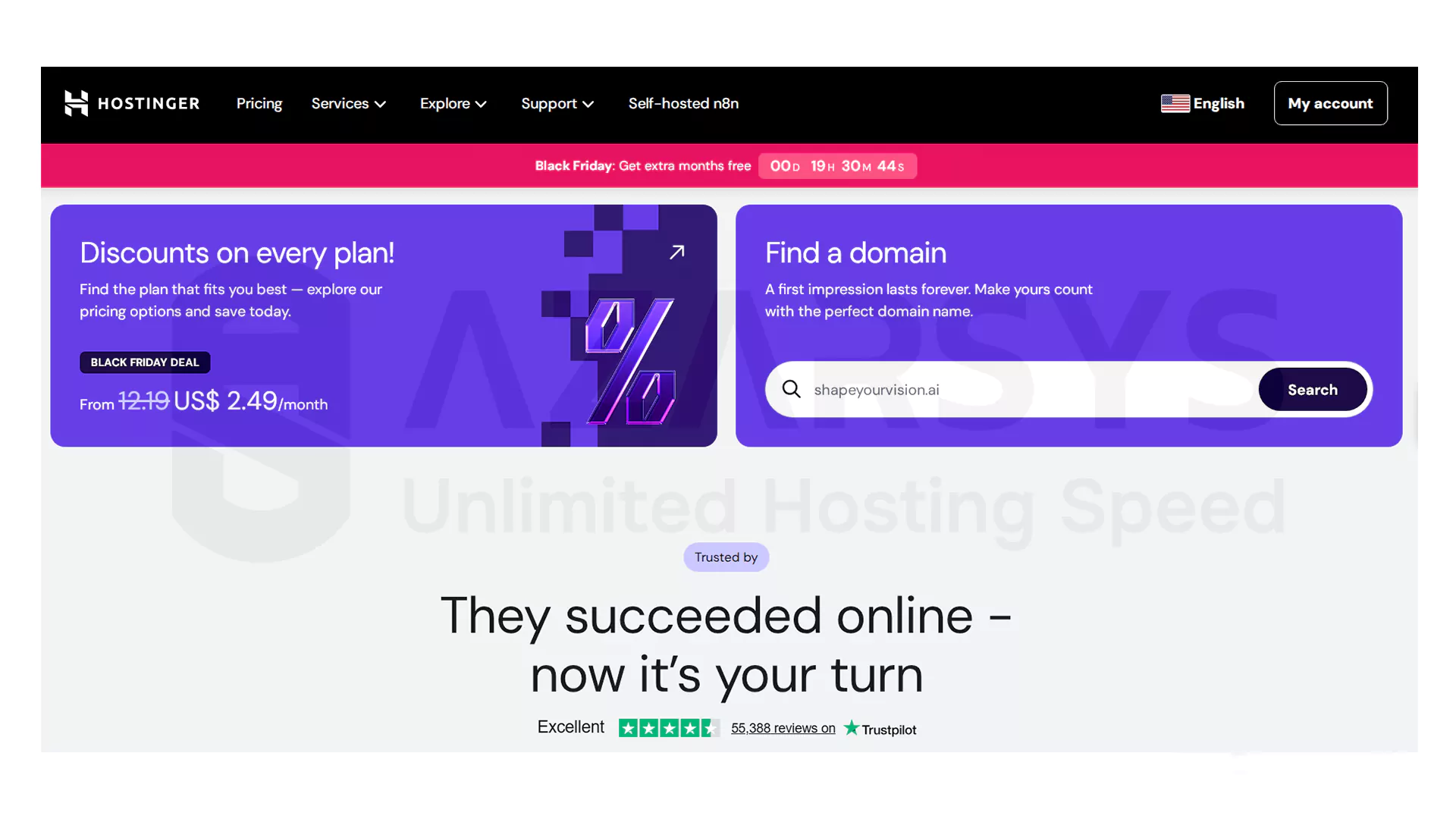The Best VPS Providers You Can Pay With Crypto (Bitcoin & USDT)

 Study duration : 20 Minutes
Study duration : 20 Minutes  0 Comment
0 CommentMore developers and even globally distributed teams have started paying for their servers with crypto. Not because it looks cool on a landing page, but because it genuinely removes banking friction, speeds up billing, and fits naturally into crypto-native workflows.
But here’s the part many people miss: a hosting provider saying “we accept Bitcoin” doesn’t automatically make the service crypto-friendly. Some rely on third-party gateways that behave like traditional processors, some force mandatory KYC, and a few make refunds practically impossible once the payment is confirmed on-chain.
To get a clearer picture, I tested a handful of VPS providers myself to see which ones actually handle crypto payments properly whether you’re paying in Bitcoin, USDT, or something else. Depending on what you’re building (a dApp, a trading bot, a regular website, or a global project with remote contributors), the difference between these providers becomes obvious fast, especially when you want payments to stay quick, private, and free from banking delays.

Why Buy a VPS With Crypto?
Honestly, people use crypto for VPS payments for a bunch of different reasons, and it’s not always some deep technical thing. Sometimes it’s just… easier. You don’t deal with banks asking why you’re paying some server company overseas, or cards randomly getting declined for no reason. You send the coins, the payment shows up, done. No business hours, no approvals, nothing like that.
And a lot of devs I’ve talked to really don’t feel like filling out the same card details or personal info every time they spin up a server. Paying with Bitcoin or USDT just skips all of that. You fire off the transaction and the VPS usually comes online without anyone asking for extra paperwork.
If you’re already doing anything in crypto bots, small on-chain tools, whatever paying with crypto just feels like part of the workflow. It’s not even something you think about; it’s just quicker than dealing with traditional billing.
One thing I figured out after a while: if you’re keeping a VPS running month after month, USDT is way less of a headache. BTC works, sure, but sometimes your $10 server suddenly becomes $14 or $7 depending on the week, and it gets annoying pretty fast.
What to Look For in a Crypto VPS Provider
When you’re picking a VPS that actually works well with crypto payments, there are a few things worth paying attention to things you only really notice after using a couple of providers.
The first one is pretty simple: make sure they support the coins you actually want to use. Some hosts only take Bitcoin, some accept USDT or a mix of both, and a few still rely on old third-party gateways that make the whole “pay with crypto” idea pointless.
Privacy is another part that catches people off guard. A lot of companies say they take crypto, but then they still push you through a KYC process before activating the server. If staying anonymous or low-profile matters to you, look for a provider that keeps verification optional.
Performance still matters, of course. You want decent CPU power, fast NVMe storage, and a network that doesn’t choke when you deploy something simple. Where the data center is located makes a noticeable difference too a VPS in the wrong region can kill latency for certain projects.
Then there’s the stuff people usually forget to check until it’s too late:
how easy it is to scale up, whether snapshots or backups are included, what their DDoS protection actually covers, and most importantly, how they handle refunds for crypto payments. Some hosts are flexible; others treat on-chain payments like they’re carved in stone.
And finally, good support always matters. Even if you rarely need it, having a team that replies when something breaks is a lot better than dealing with a silent ticket system.
Pros & Cons of Crypto VPS Hosting
Using crypto to pay for a VPS has its ups and downs, and you only really notice them once you’ve done it a few times.
On the positive side, the payments are unbelievably quick. You send the coins, the provider sees it, and the server usually goes live without waiting for banks or card approvals.
People who care about privacy also like the fact that they don’t have to hand over bank details or connect a card just to rent a machine. For anyone working on Web3 tools, trading bots, or anything crypto-related, it just fits the workflow. And if you’re part of a remote team spread across different countries, being able to pay globally without currency issues is genuinely useful.
But it’s not perfect. Paying with Bitcoin can be a bit of a rollercoaster if you’re planning long-term billing one month the price is up, the next month it’s down, and your actual cost keeps shifting. Refunds can also be tricky; once a transaction hits the blockchain, some hosts just won’t reverse it. A few providers still insist on KYC even though they advertise “crypto-friendly,” which kind of defeats the purpose for users who want privacy. And depending on the coin or network you’re using, fees can vary a lot paying with BTC on a busy day vs paying with USDT on TRC20 feels like two completely different worlds.

Best VPS Providers That Accept Bitcoin & USDT
1- Vultr
Crypto accepted: Bitcoin
Highlights: Global infrastructure, scalable cloud, instant deployment
Vultr is among the largest providers of cloud hosting with strong performance and global coverage; it has support for Bitcoin, which makes it a great option for developers and startups searching for BTC billing
Best for: Developers, SaaS, scalable cloud workloads
Downside: No USDT support yet

2- Azarsys
Crypto accepted: Bitcoin & USDT
Highlights: High-performance infrastructure, transparent resource allocation, multiple VPS & cloud tiers
Azarsys supports both BTC and USDT, making it ideal for users who prefer stablecoin billing and it is popular for DevOps users and performance-focused workloads
Best for: High-performance VPS, DevOps, stablecoin payments (USDT)

3- Hostinger
Crypto accepted: Bitcoin (via payment gateways)
Highlights: Affordable VPS plans, SSD storage, global presence
Hostinger is friendly for beginners and budget-oriented and it accepts Bitcoin via supported third-party processors, which makes it a good entry-level option for small projects
Best for: Personal projects, small business sites, affordable VPS with crypto billing

Pricing Overview (General Range)
Prices vary a bit between providers, but the general pattern is pretty simple:
Vultr stays in the classic cloud range, Azarsys leans toward high-performance NVMe setups at a fair rate, and Hostinger keeps things budget-friendly for smaller projects.
Here’s a quick snapshot so you can compare them side-by-side without digging through each pricing page:
| Provider | Starting Price | Included Resources |
|---|---|---|
| Vultr | ~$5/month | 1 vCPU, 1GB RAM, 25GB SSD |
| Azarsys | ~$6/month | 1 vCPU, 1GB RAM, NVMe storage |
| Hostinger | ~$4.99/month | 1 vCPU, 1GB RAM, 20GB SSD |
Tip: USDT payments are often better for recurring billing because they avoid Bitcoin’s price volatility
Who Benefits Most From Crypto VPS Hosting?
Crypto-friendly VPS hosting isn’t just for “crypto people.” Different groups end up using it for their own reasons, and you start to notice the patterns once you’ve talked to enough users.
Developers working on blockchain stuff are usually the first group. They spin up test nodes, small networks, or little tools and prefer paying in the same ecosystem they’re building in. It just makes everything simpler.
Then you have traders who run automated bots. Most of them don’t want banking friction or billing issues interrupting their setup, especially if they’re managing servers across different regions. Paying with crypto keeps things predictable.
Web3 teams also lean toward crypto billing because it fits the way they already work: decentralized tools, remote contributors, global workflow. Paying with Bitcoin or USDT is basically the default for them.
And there are people who aren’t in crypto at all but still prefer this method digital nomads, for example. When you’re switching countries every few months, dealing with banks gets old fast. A quick crypto transfer is easier than figuring out local payment restrictions.
Lastly, there’s a whole group of users who simply don’t want to hand over unnecessary personal information. They don’t want their card saved anywhere, they don’t want verification emails, they just want a server. Crypto gives them that without the usual fuss.
Key Security & Risk Considerations
When you start paying for servers with crypto, everything feels pretty smooth at first… but there are a few things people usually don’t think about until they run into them.
For example, Bitcoin payments look cool until the price decides to jump or crash the same day your invoice is due. One month the bill feels cheap, the next month it’s suddenly higher, and you’re left wondering why your “$10 VPS” now feels like something else entirely. With USDT you don’t deal with that it just stays the same.
Another thing: crypto payments don’t have an “oops, undo that” button. Once the transaction lands on-chain, it’s basically permanent. Some hosts help you out if something goes wrong, some don’t. If they say “no refunds on crypto,” they usually mean it.
And yeah… there are scammy “crypto VPS” sites out there. Some of them look halfway legit, take your coins instantly, and then the server never shows up. If a provider feels sketchy or too cheap to make sense, trust that feeling.
Network fees can also surprise you. Paying with BTC on a busy day can cost more than the VPS itself, while TRC20 USDT or Lightning usually keeps things simple and cheap. Most people eventually switch.
As for the server side, the crypto part doesn’t magically secure anything. You still want to lock it down the moment it boots SSH keys, firewall, all the boring stuff. And make sure the host has some form of DDoS protection, because once a server gets hit, it gets ugly fast.
Practical Tips When Paying for a VPS With Crypto
From my own experience, a few small habits make the whole process a lot smoother:
If you’re planning to keep the VPS for months, stablecoins (especially USDT) are usually easier to deal with. Bitcoin works fine too, but the price moves so much that long-term billing can get annoying.
Before you send anything, take a quick look at the provider’s refund policy — some hosts are super strict once a transaction hits the blockchain.
Also, keep your TXID somewhere safe. It sounds obvious, but it’s the first thing support will ask for if anything goes weird.
And if you’re trying to avoid expensive BTC fees, using TRC20 USDT or even Lightning makes a noticeable difference.
One more thing: if privacy matters to you, double-check whether the host forces KYC or not. Some say “crypto-friendly” but act more like a bank once you actually try to pay.
Which VPS Provider Should You Choose?
| Provider | Accepts Bitcoin | Accepts USDT | Strengths |
| Vultr | ✅ | ❌ | Developer-friendly cloud |
| Azarsys | ✅ | ✅ | High-performance + crypto billing |
| Hostinger | ✅ | ❌ | Budget hosting |
Tip: If you want the most flexible crypto payments, choose a provider that supports both BTC and USDT, like Azarsys!!!
Final Thoughts
After trying these providers myself, I realized most people don’t actually need the “perfect” VPS they just need one that plays nicely with the way they work. Some folks want the privacy of paying without KYC, some want stable monthly costs with USDT, and others just want a host that accepts Bitcoin without turning it into a support ticket marathon.
The truth is, each option has its own personality. Azarsys feels more performance-driven and practical for USDT users, Vultr is solid if you prefer something big and familiar that takes BTC, and Hostinger is fine when you don’t want to spend much or your project is still small.
So instead of overthinking it, pick the provider that matches your habits, not the one that looks the most impressive on paper. As long as payments go through smoothly and the server behaves the way you need, that’s really what matters.
Refund policies vary by provider, but crypto payments are usually non-refundable. Always check terms before paying.
No. Some offer no-KYC options, but large cloud providers may ask for identity verification depending on activity and region.
Yes, as long as you use a trusted provider and verify the payment address. For safety, send a small test transaction first.





